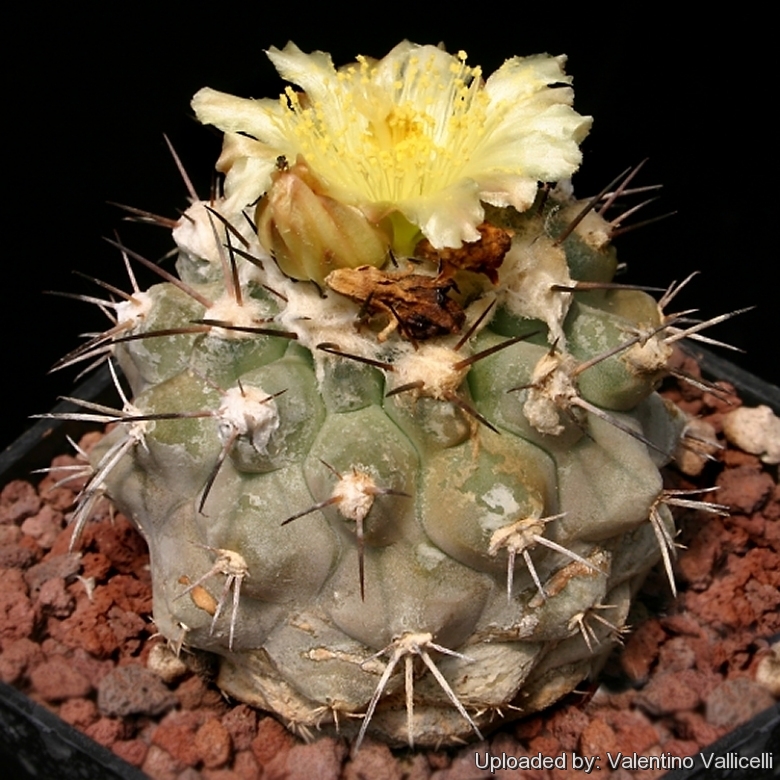
Copiapoa mollicula Photo by: Valentino Vallicelli
Origin and Habitat: Distribution: Chile, Atacama: Cuastal hills between Chañaral and Puerto Viejo.
Synonyms:
See all synonyms of Copiapoa mollicula
back
Accepted name in llifle Database:Copiapoa mollicula F.RitterTaxon 12: 30. 1963Synonymy: 2
back
Common Names include:
SPANISH (Español): Bajotierra
Description: This close relative of Copiapoa hypogaeaSN|881]]SN|881]] is usually solitary or forms small clumps.
Stem: The stem is thick soft, flat to globular 7,5 cm in diameter, often with a nice grey-green, blue-grey, pinkish-grey or brownish-grey colour. The apex is woolly.
Ribs: 10 to 14 ribs
Roots: Heavy underground root.
Central spines: (0-)1 to 3 blackish, up to 2.5 cm long;
Radial spines: 5 to 9 (sometime absent)
Flowers: Campanulate 3 cm long and grow from the centre of the white wool at the apex. Outer segments of the perianth are linear and orangish; inner segments are wide, blunt and yellow
Subspecies, varieties, forms and cultivars of plants belonging to the Copiapoa mollicula group
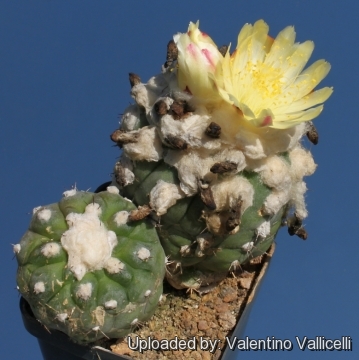 Copiapoa mollicula Photo by: Valentino Vallicelli
Copiapoa mollicula Photo by: Valentino Vallicelli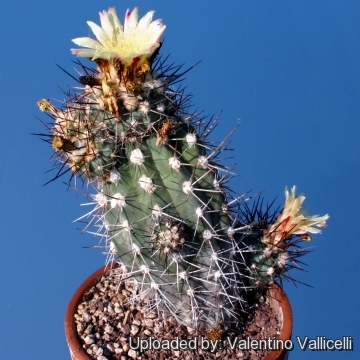 FR525 North of Chañaral airstrip, mountains, Region 02 Antofagasta, Chile Photo by: Valentino Vallicelli
FR525 North of Chañaral airstrip, mountains, Region 02 Antofagasta, Chile Photo by: Valentino Vallicelli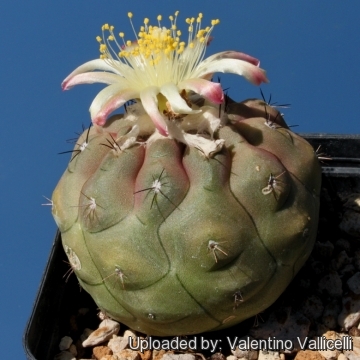 Copiapoa mollicula Photo by: Valentino Vallicelli
Copiapoa mollicula Photo by: Valentino Vallicelli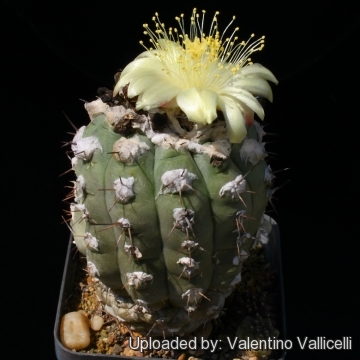 Copiapoa mollicula Photo by: Valentino Vallicelli
Copiapoa mollicula Photo by: Valentino Vallicelli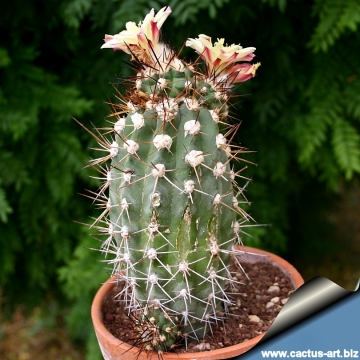 Copiapoa mollicula Photo by: Cactus Art
Copiapoa mollicula Photo by: Cactus Art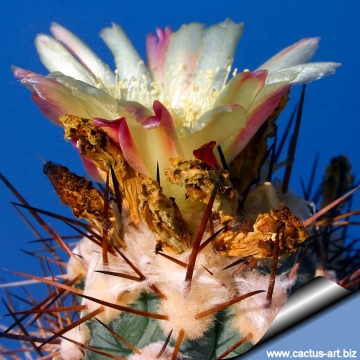 Copiapoa mollicula Photo by: Cactus Art
Copiapoa mollicula Photo by: Cactus Art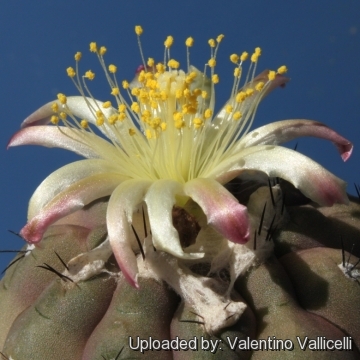 Copiapoa mollicula Photo by: Valentino Vallicelli
Copiapoa mollicula Photo by: Valentino Vallicelli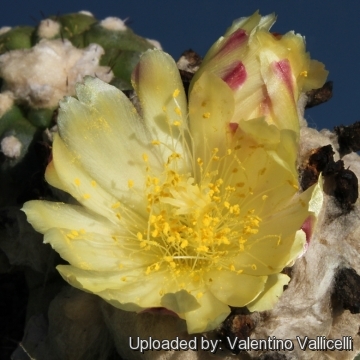 Copiapoa mollicula Photo by: Valentino Vallicelli
Copiapoa mollicula Photo by: Valentino VallicelliCultivation and Propagation: Very slow growing, need full sun but should be protected from excessive heat and sun in summer. Require light watering and good drainage. Keep warm and dry in winter to avoid rot. It needs mild heat in winter, avoid any frost.
Propagation: Seeds or or stems planted as cuttings. Grafting is often used to speed growth rate and to create a back-up to plants in collection.
Your Photos
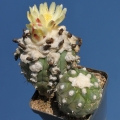
by Valentino Vallicelli
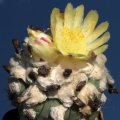
by Valentino Vallicelli
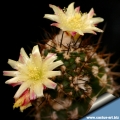
by Cactus Art





















